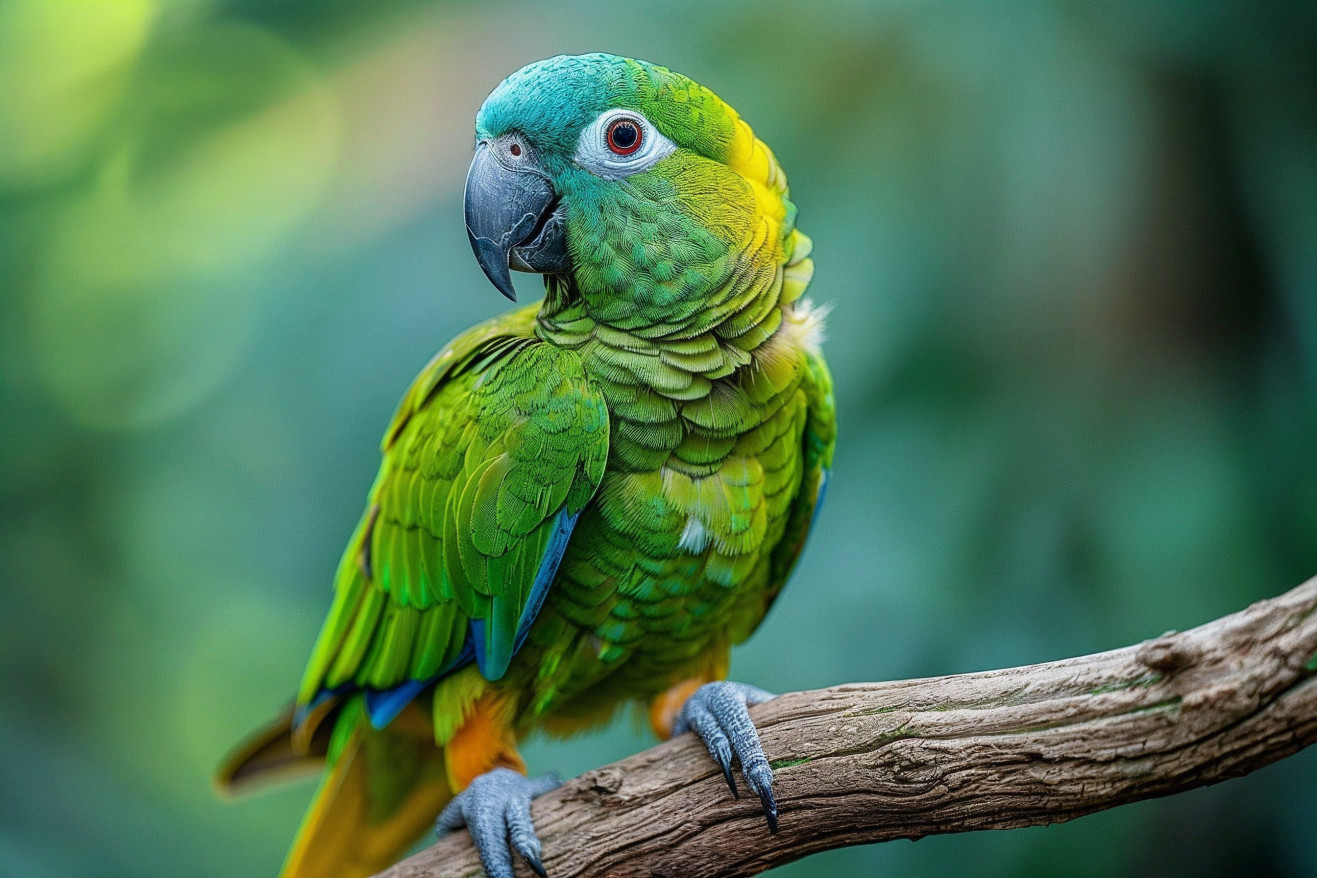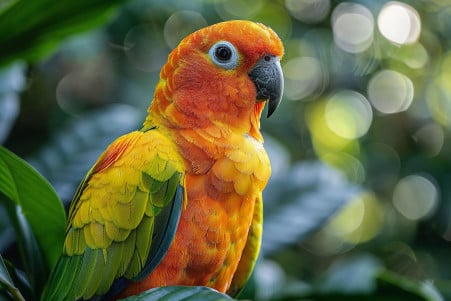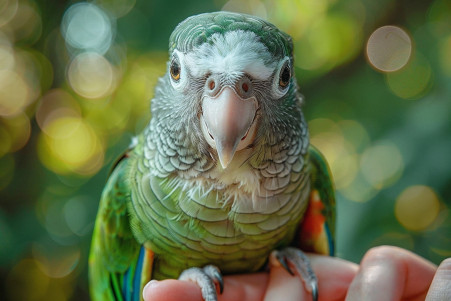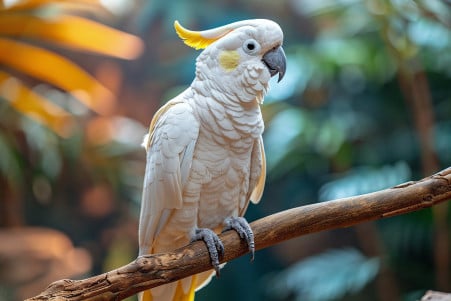Conure Lifespan: How Long Do These Vibrant Parrots Live?
11 June 2024 • Updated 10 June 2024

Conures, the colorful, intelligent parrots that are also known for their noisy, outgoing personalities, have a long lifespan when they are well cared for and given the right living conditions. On average, conures live 20-30 years as pets, with some, like the green-cheeked conure, living up to 40 years in captivity when they are kept in the right environment. In the wild, they live much shorter lives, with an average lifespan of 10-15 years.
That said, there are many things that determine exactly how long these beautiful birds will live. To give you a complete picture, we will go over the most recent avian studies that have looked at the environmental factors, diet, social needs, genetics, and care that can determine how long different conure species will live. With this information, you will be better able to make sure that you are giving your conure the best care possible to ensure a long, healthy, and happy life.
How long do conures live?
Housing and Environment: The Building Blocks of Conure Care
Conures need a roomy cage with the right bar spacing and a variety of perches to stay healthy. As noted by PetMD, the minimum recommended cage size for a small conure like a green-cheek is 24" x 24" x 30", with bar spacing no more than 3/4" apart to prevent escape and injury. Larger conure species require even larger cages.
The cage should be kept in a well-lit, temperature-regulated area that's free from drafts and kitchen fumes, which can be harmful. PetNation suggests placing the cage against a wall in a living room, avoiding areas with drafts and direct sunlight. The temperature should be kept between 65-80°F.
Cleanliness is key to good health. Petco notes that you should spot-clean daily, change the substrate weekly, and clean the entire cage with a disinfectant regularly. A dirty cage can lead to the growth of bacteria that can make conures sick.
It's also important to make sure that your conure has a variety of perches and plenty of toys to keep them mentally stimulated. PetMD suggests foraging toys, which can help prevent feather plucking and other behavioral issues that can arise from boredom. Different textures of perches can help prevent foot problems by giving their feet a chance to exercise and preventing sores.
Conures are highly social flock animals. Time outside of the cage with their human "flock" can help prevent loneliness and depression. An enriched home environment with plenty of opportunities for socialization will help these intelligent birds live their best lives.
Nutritional Needs: Fueling Conure Vitality
A healthy diet is important for conures, and it should be made up mostly of high-quality pellets with some fresh fruits and vegetables. CONURES CARE SHEET - PET NATION suggests that 60-70% of a conure's diet should be pellets, while the other 30-40% should be fresh fruits and veggies and a few treats.
Seeds should be fed in limited quantities because they are not nutritionally complete and can lead to obesity. Petco notes that treats, including seeds, should make up no more than 10% of a conure's diet.
In some cases, calcium and vitamin supplements may be needed, especially for birds that are breeding or molting. PetMD recommends offering a cuttlebone or calcium supplement to ensure that the bird is absorbing enough calcium. Changes in a bird's water or food consumption can also be a sign that they need a supplement.
It's important to make sure that conures have access to fresh, clean water every day. PetNation suggests that you wash and dry the water dish every time you change it to prevent bacteria from building up. An avian vet can help you come up with a diet plan that's tailored to your conure's specific needs and health concerns.
When conures are fed a healthy diet, they can enjoy the good health and vitality that will help them be happy, active pets for many years to come. Moving on to this section, proper socialization and bonding are just as important for a conure's health and longevity.
Socialization and Bonding: Nurturing Conure Companionship
Conures are highly social and intelligent birds that require a lot of interaction and attention from their human companions. Trained Parrot Blog notes that proper socialization when the bird is young is important to make sure that you can develop a good relationship with your conure. This includes positive reinforcement training, handling, and interaction to reduce the bird's fear and aggression.
Meanwhile, Parrot And Human Bonding stresses that it's important to learn your conure's body language and sounds so that you can communicate and bond with it effectively. In addition, How to Interact with Your Conure: 12 Steps (with Pictures) suggests that you should make sure to keep your bird mentally stimulated with toys, training, and out-of-cage time to prevent behavioral problems and strengthen your bond.
It's important to recognize that socializing and bonding with a conure is a big responsibility, but it's also necessary for the bird's overall health and happiness. By making sure to nurture this lively relationship, you can make sure that your conure has a full and enriched life. With the right care and attention, these smart birds can be a fun and fulfilling part of your life for many years to come.
Common Health Issues: How to Identify and Treat Conure Diseases
Conures are susceptible to a number of health issues that will need to be closely monitored and treated by a veterinarian. According to VCA Animal Hospitals, these can include respiratory infections, feather plucking, overgrown beaks and nails, obesity, and reproductive problems.
Symptoms of illness in conures include loss of appetite, listlessness, discharge, labored breathing, diarrhea, and unusual feather loss, according to wikiHow. Meanwhile, conure bleeding syndrome, polyomavirus, and heavy metal toxicity are all conditions that need to be treated by a vet, according to Bird Vet Melbourne.
Regular visits to an avian vet are important for catching and treating health issues early. As VCA Animal Hospitals notes, any changes in behavior or appearance should be cause for concern. Many of the most common health problems that conures face can be avoided and their life spans can be extended by ensuring they have a healthy diet, living environment, and social life, all of which are covered in the previous sections.
By learning about the health issues that conures are most susceptible to and taking steps to prevent them, conure owners can help their colorful, intelligent pets live long, fulfilling lives. With the right care and attention, conures can live for decades and provide their owners with years of companionship and joy.
Conclusion: Unlocking the Secrets to Conure Longevity
Conures are remarkable companions known for their impressive lifespans, often living 20-30 years or more in captivity. Providing proper housing, a balanced diet, socialization, and preventive healthcare are essential for maximizing a conure's longevity. Understanding and addressing common health concerns promptly is crucial for maintaining a conure's well-being.
With the right care and attention, these vibrant and intelligent parrots can bring joy and companionship for decades. Embracing the responsibility of conure ownership can lead to a rewarding, long-lasting relationship with these delightful feathered friends.


